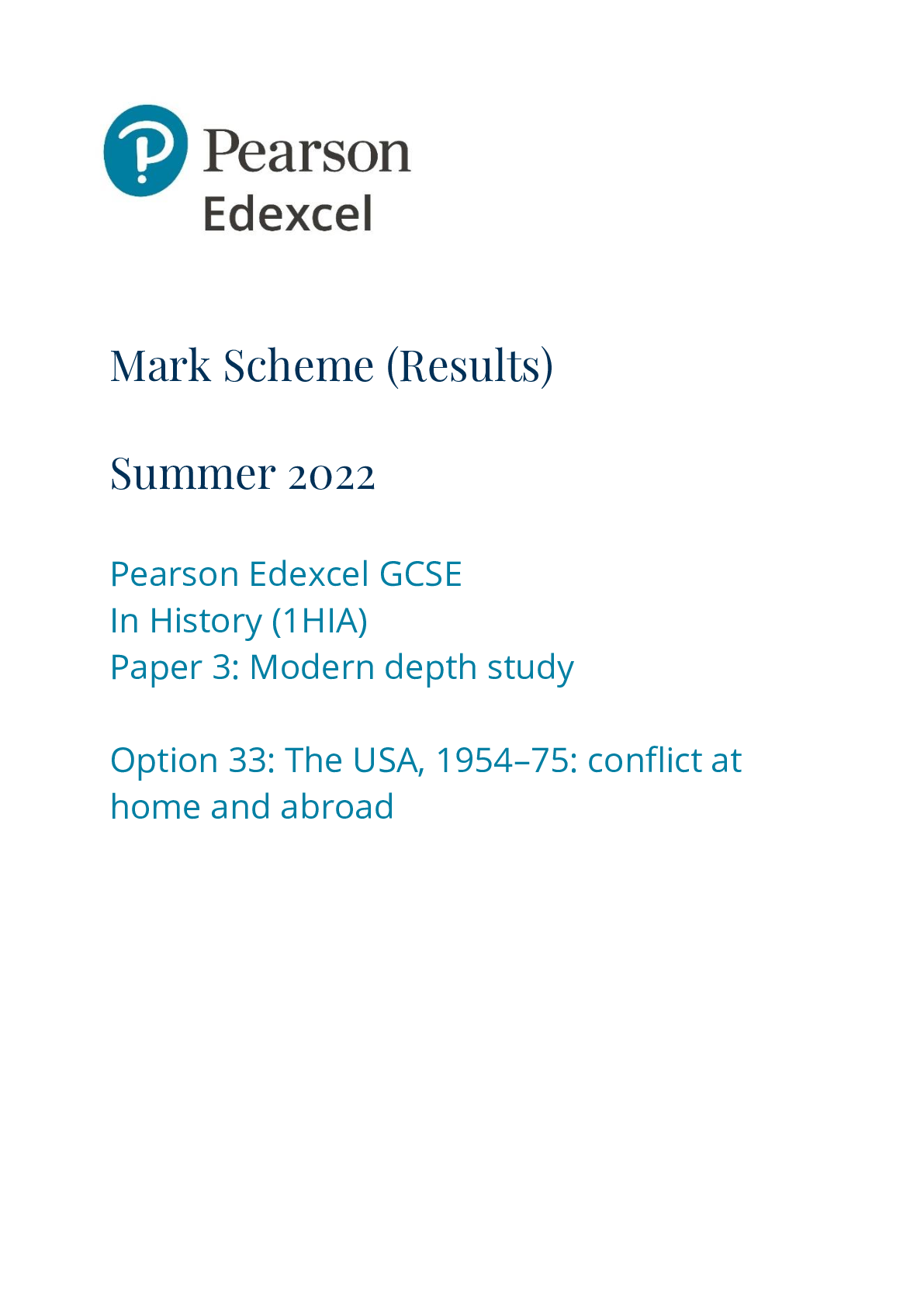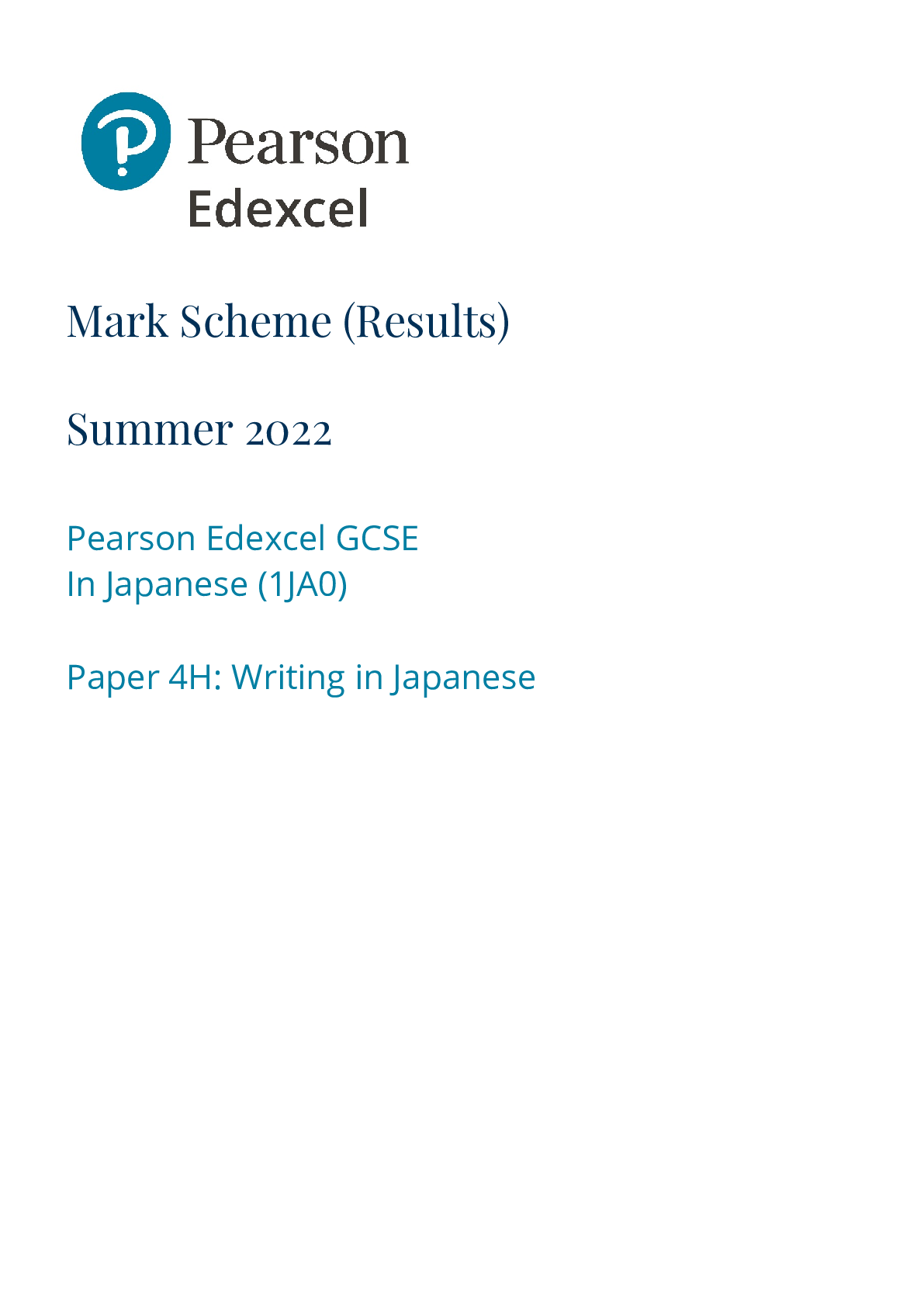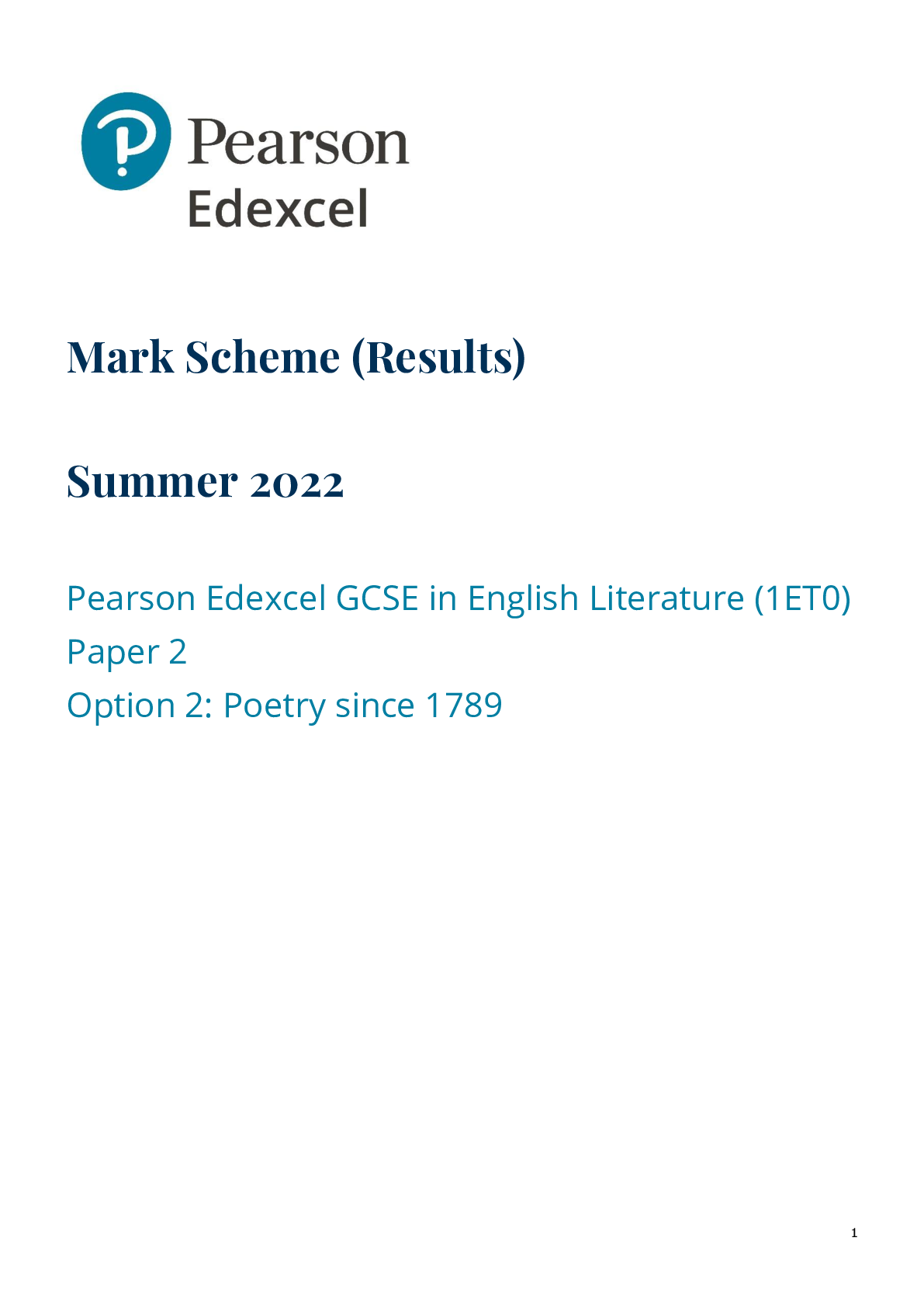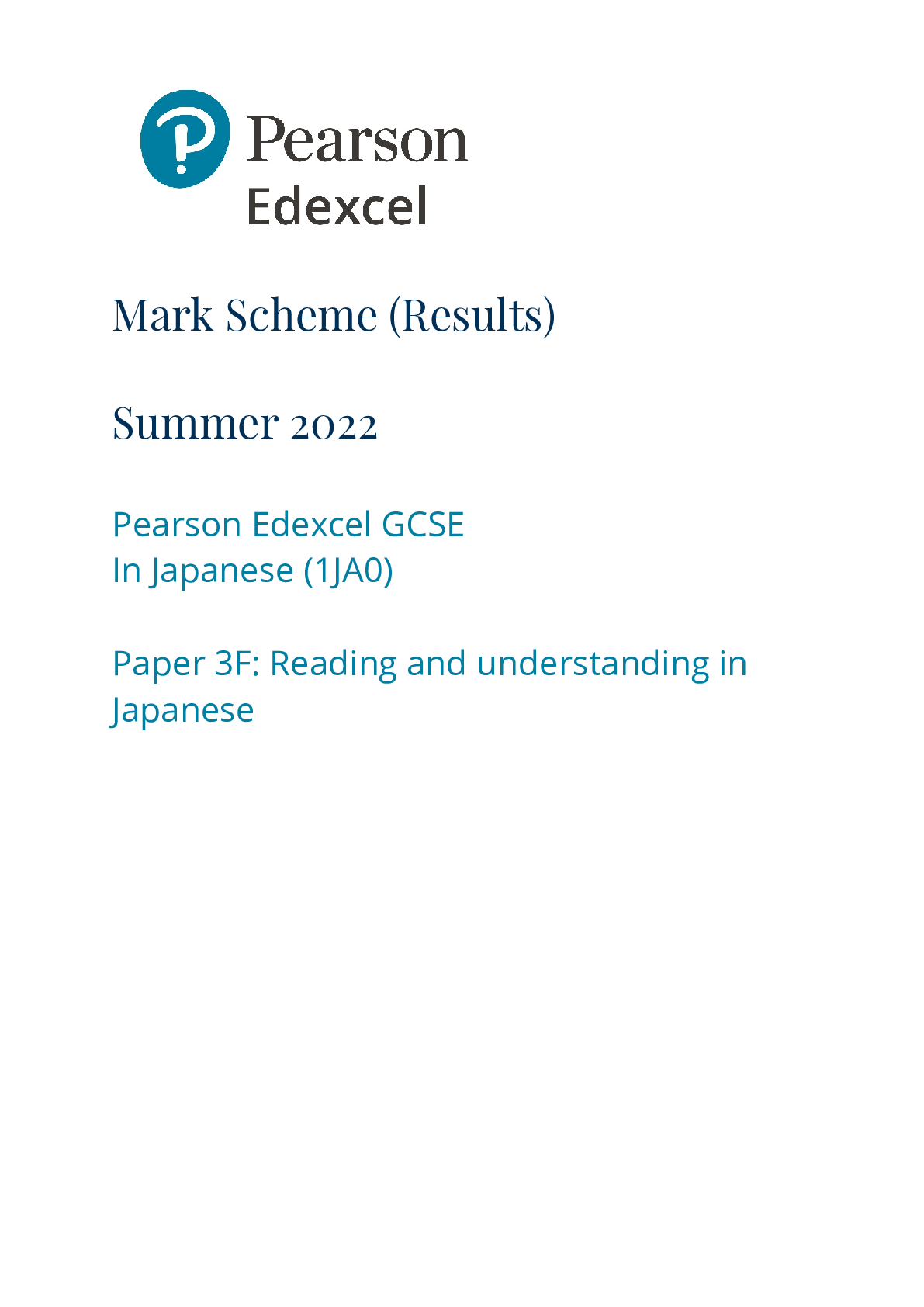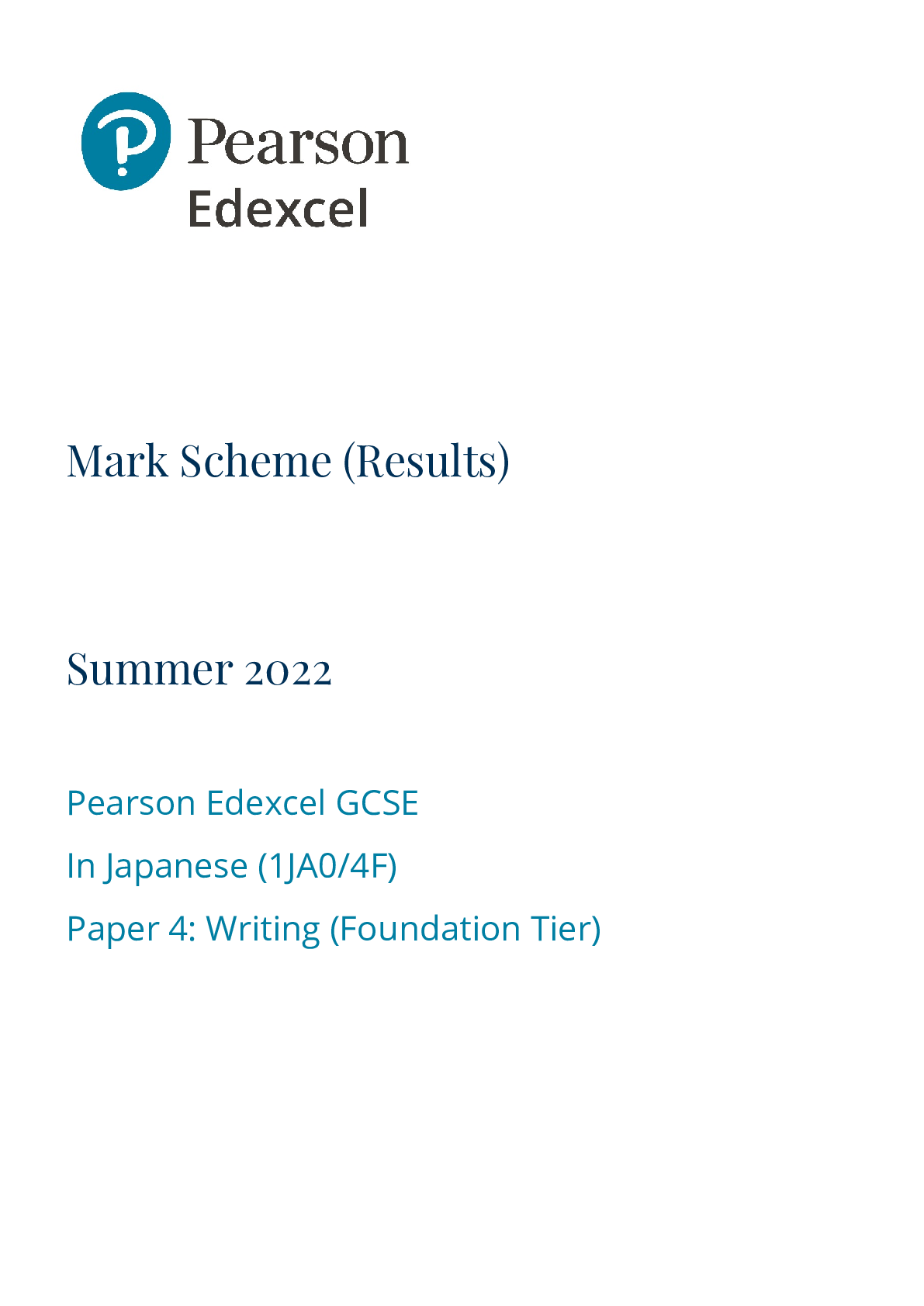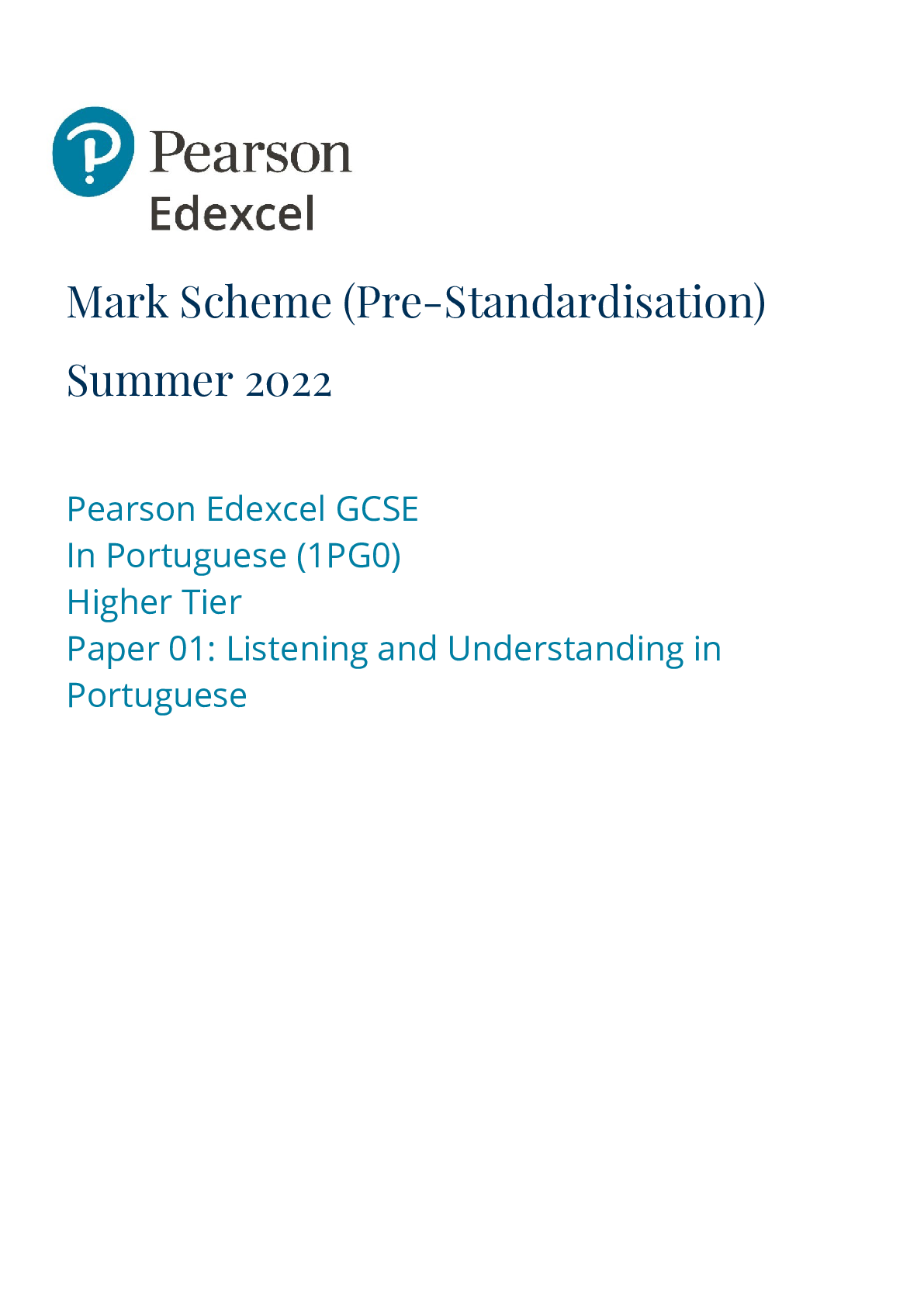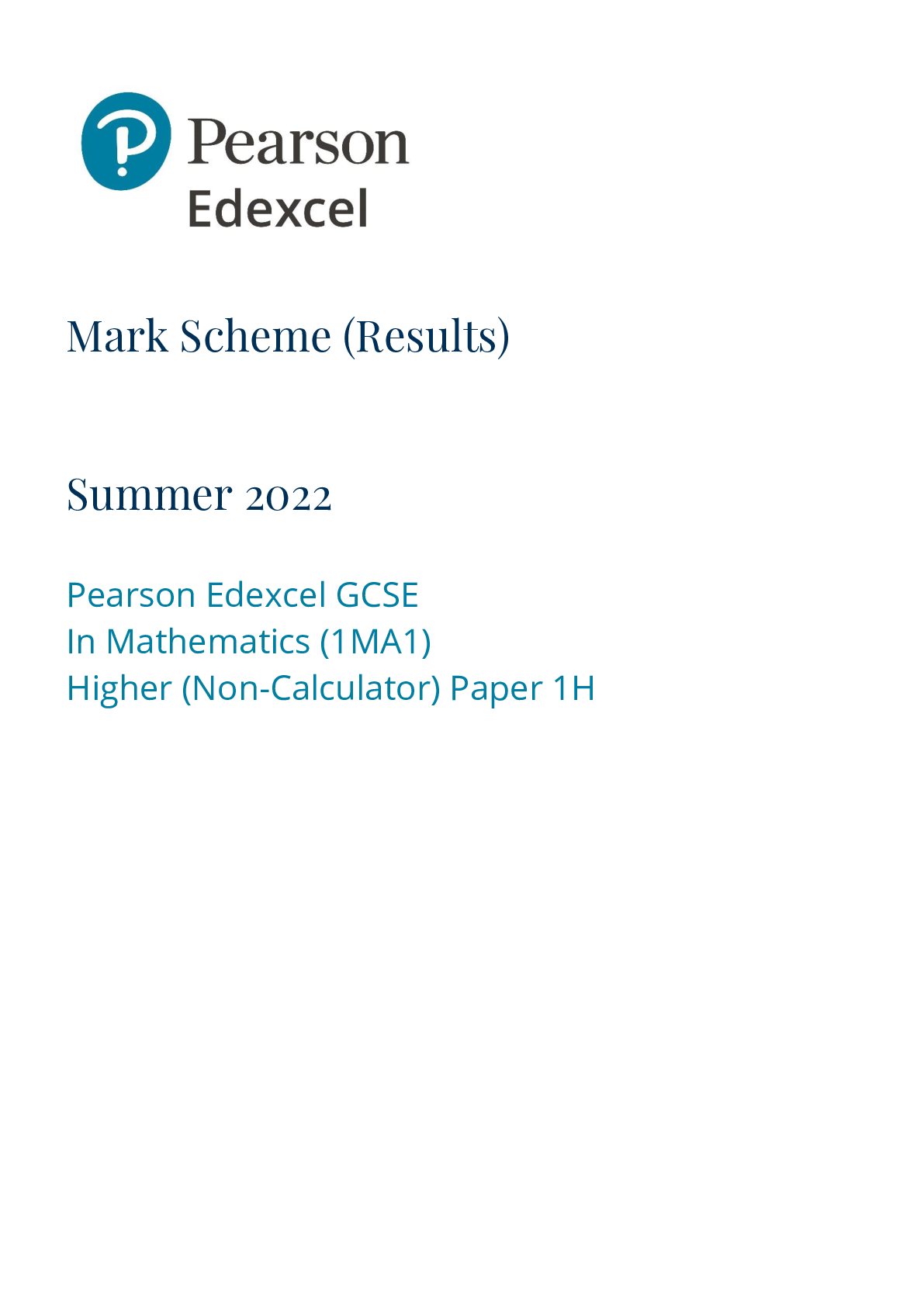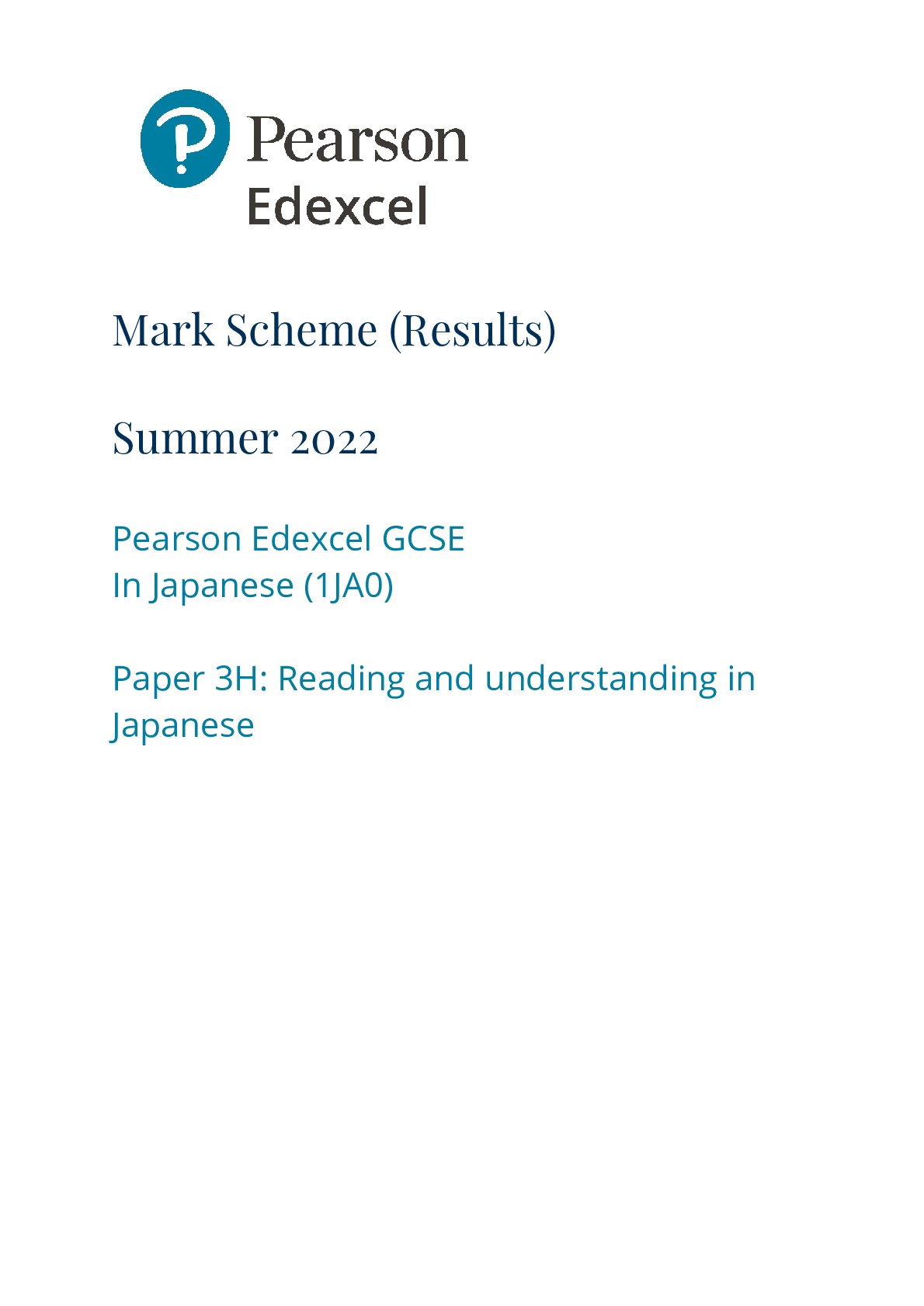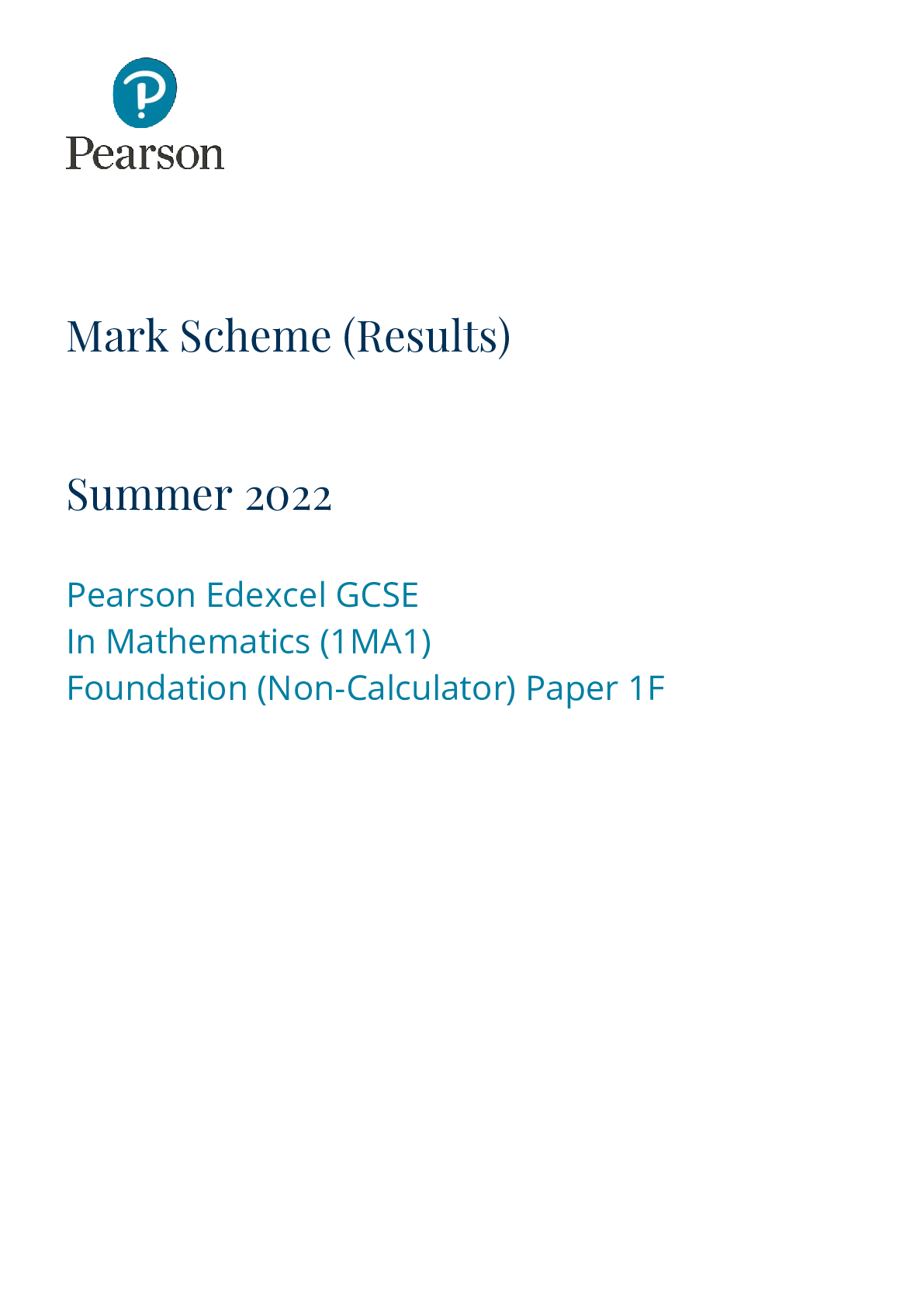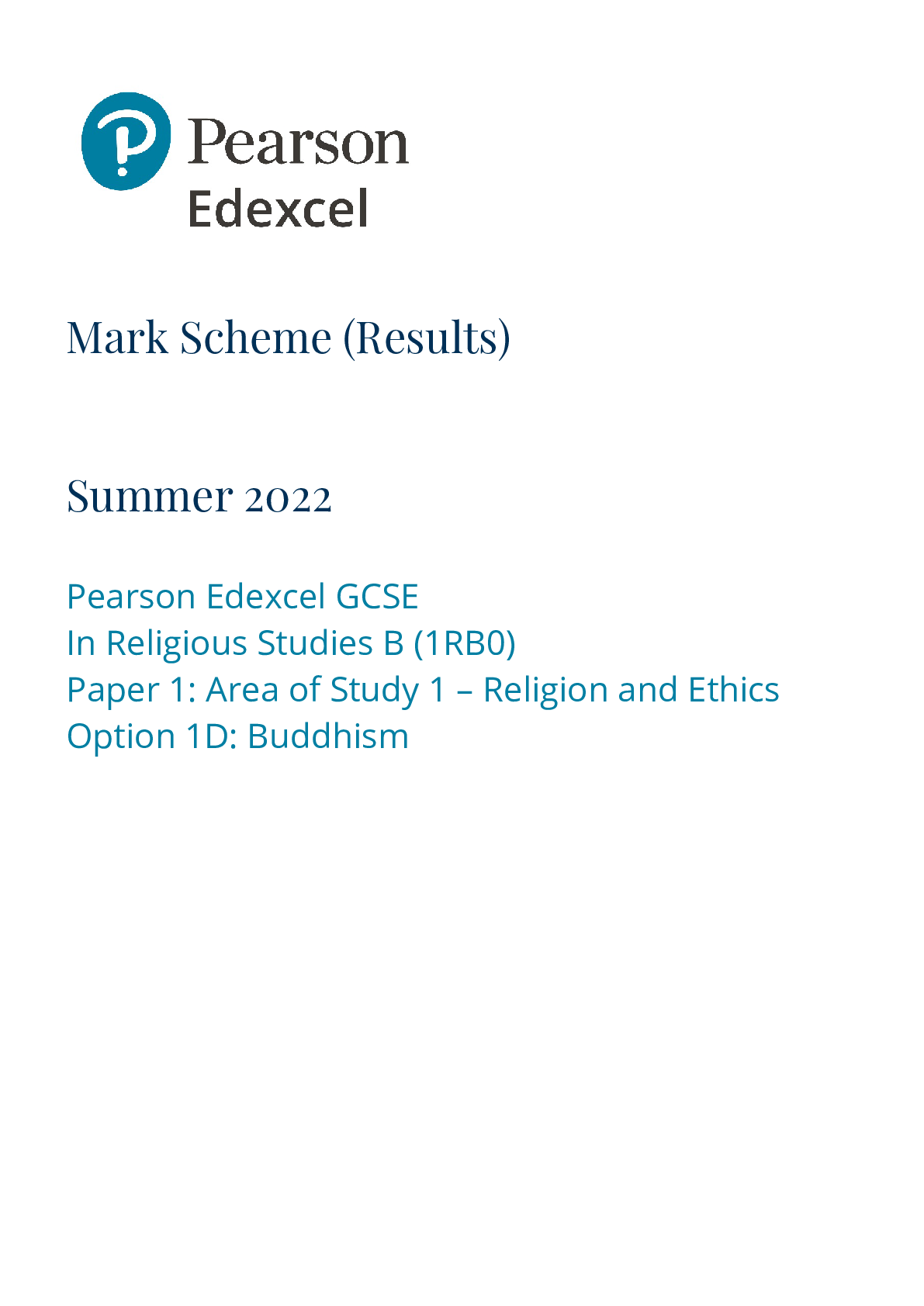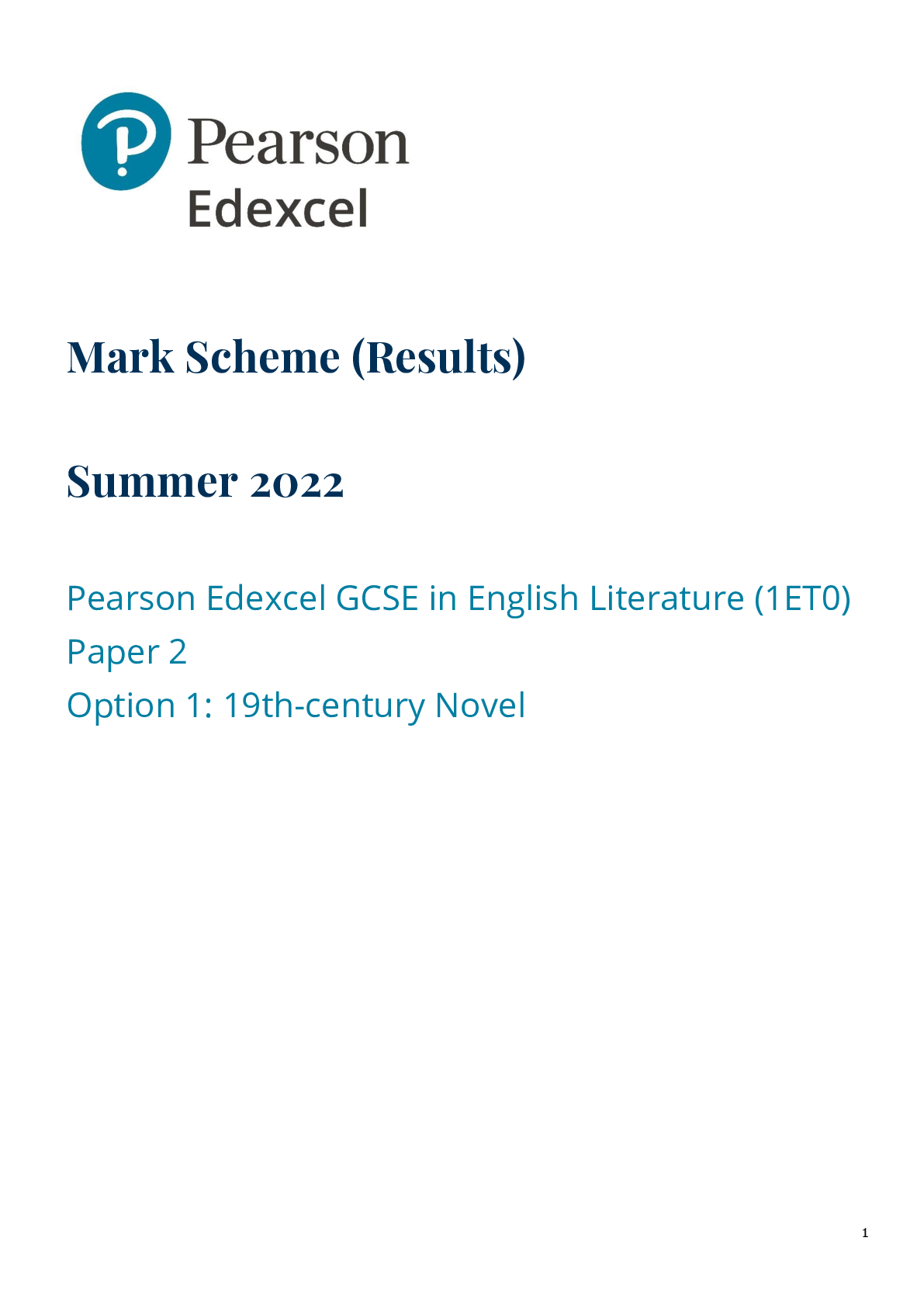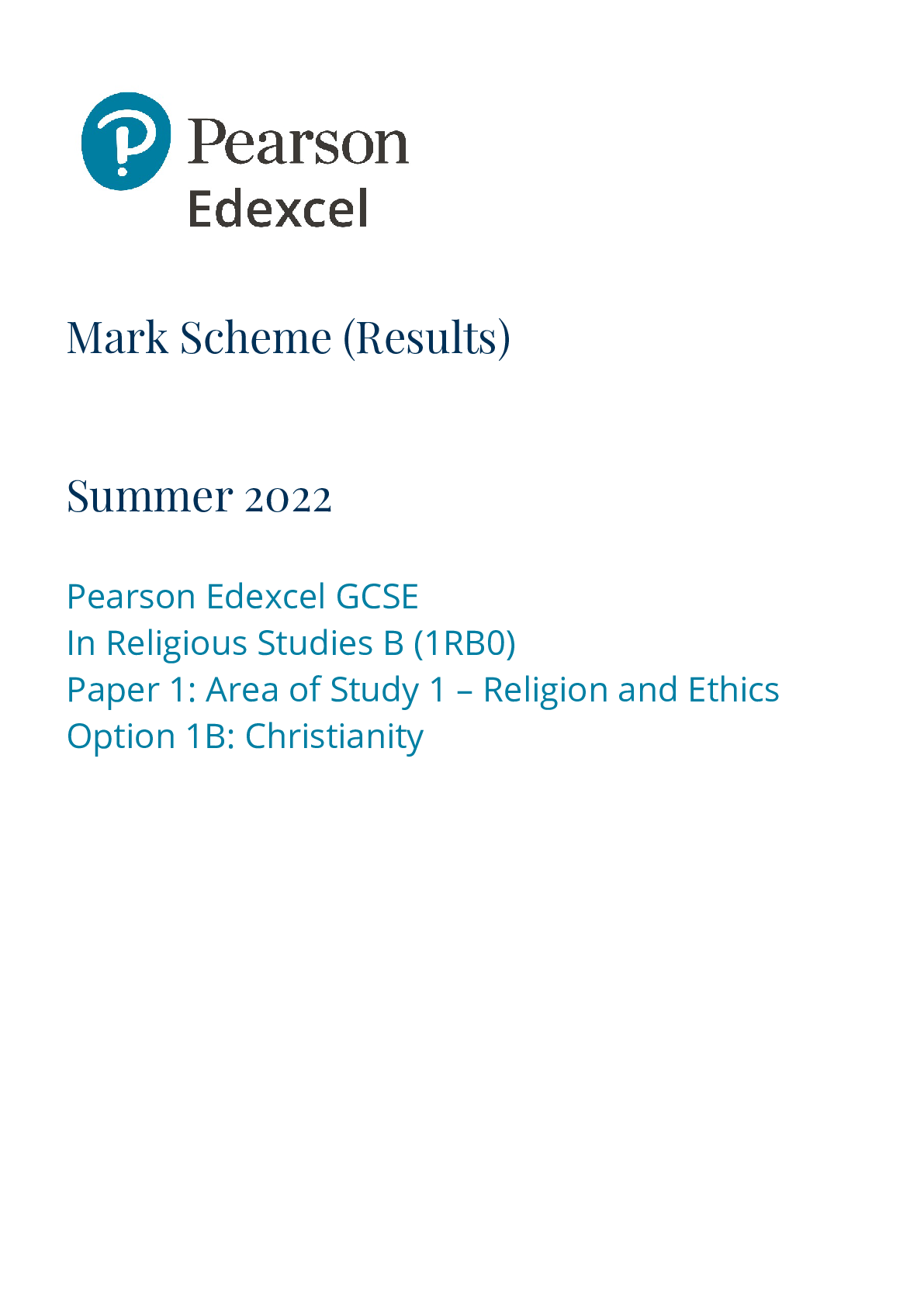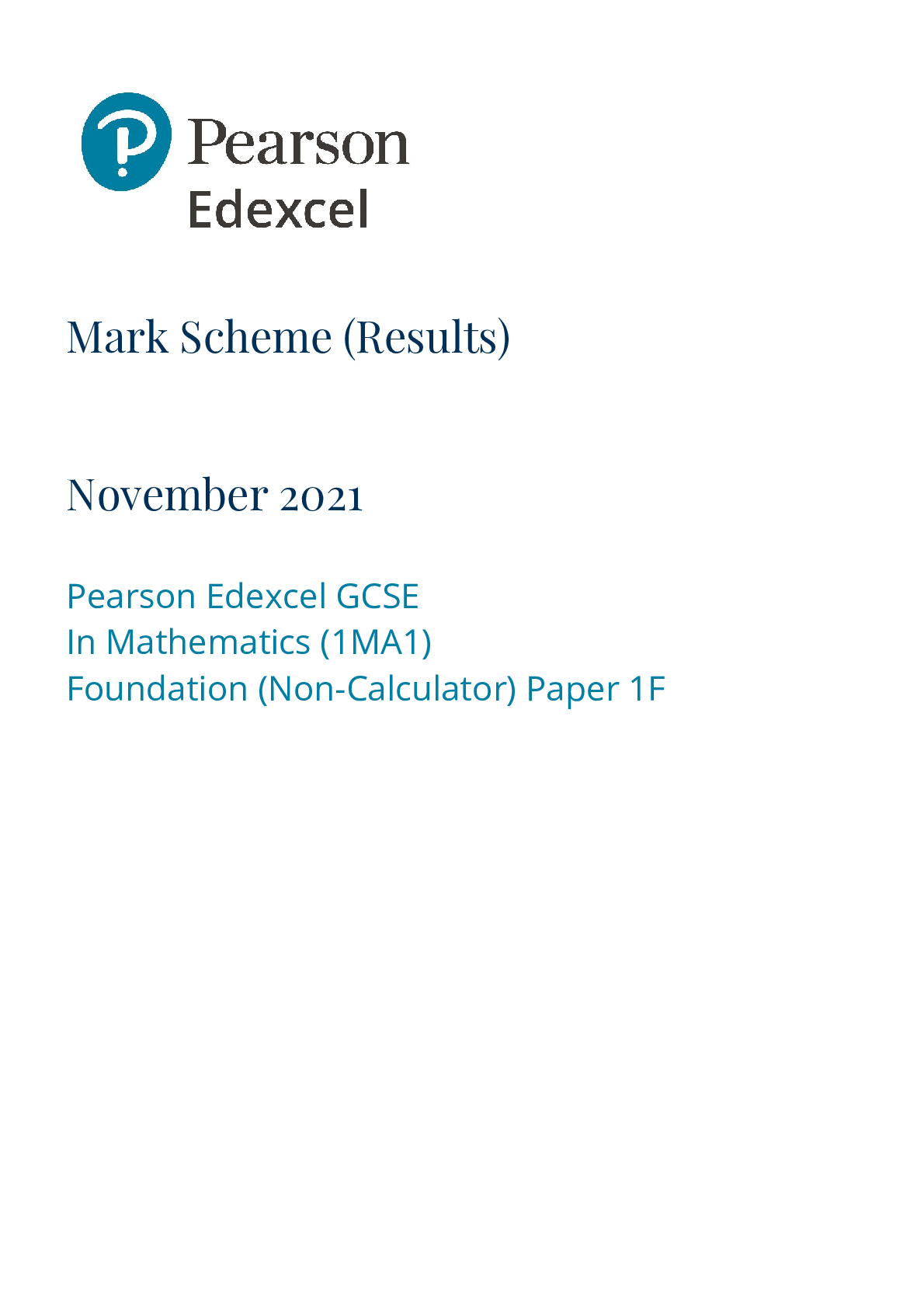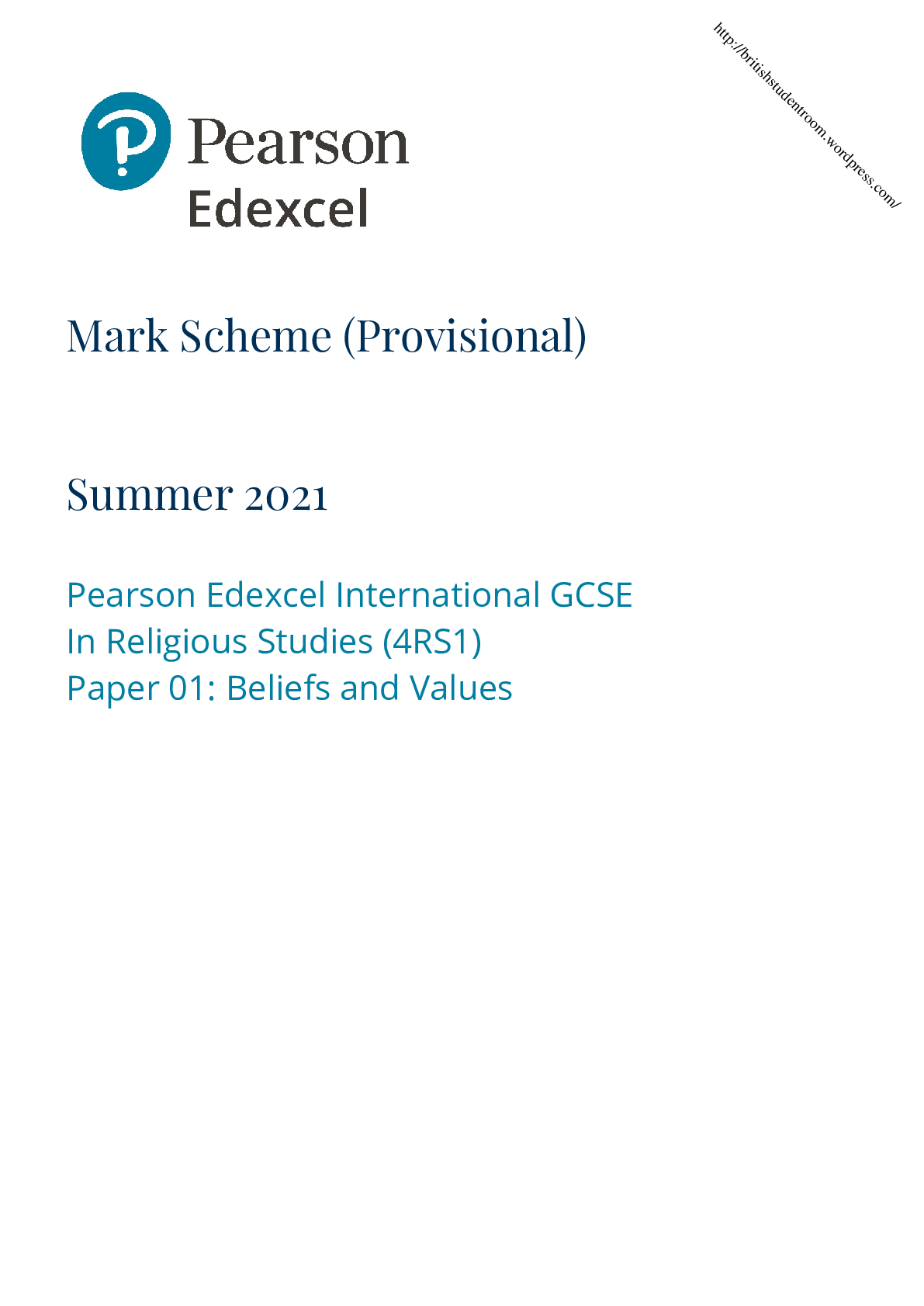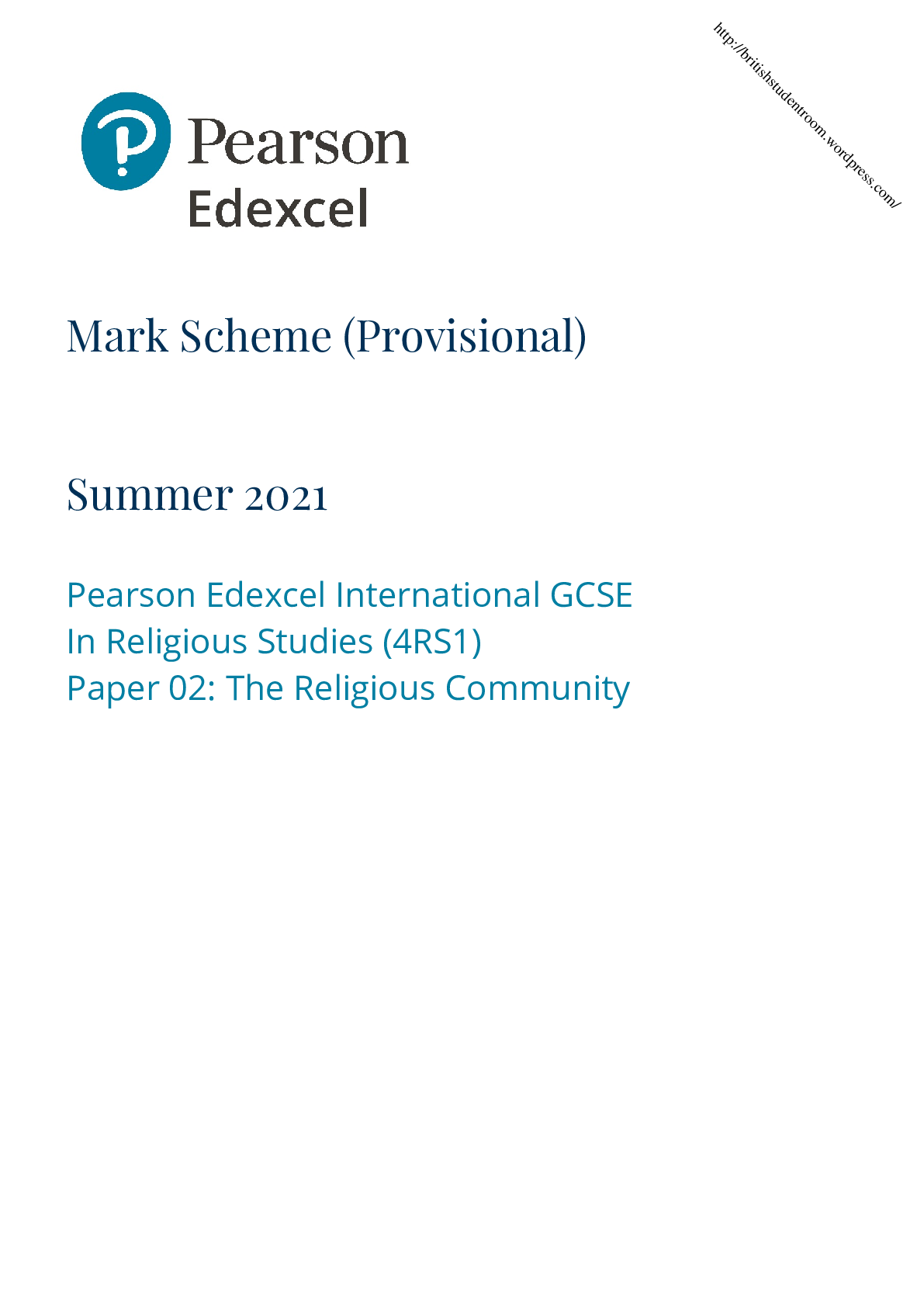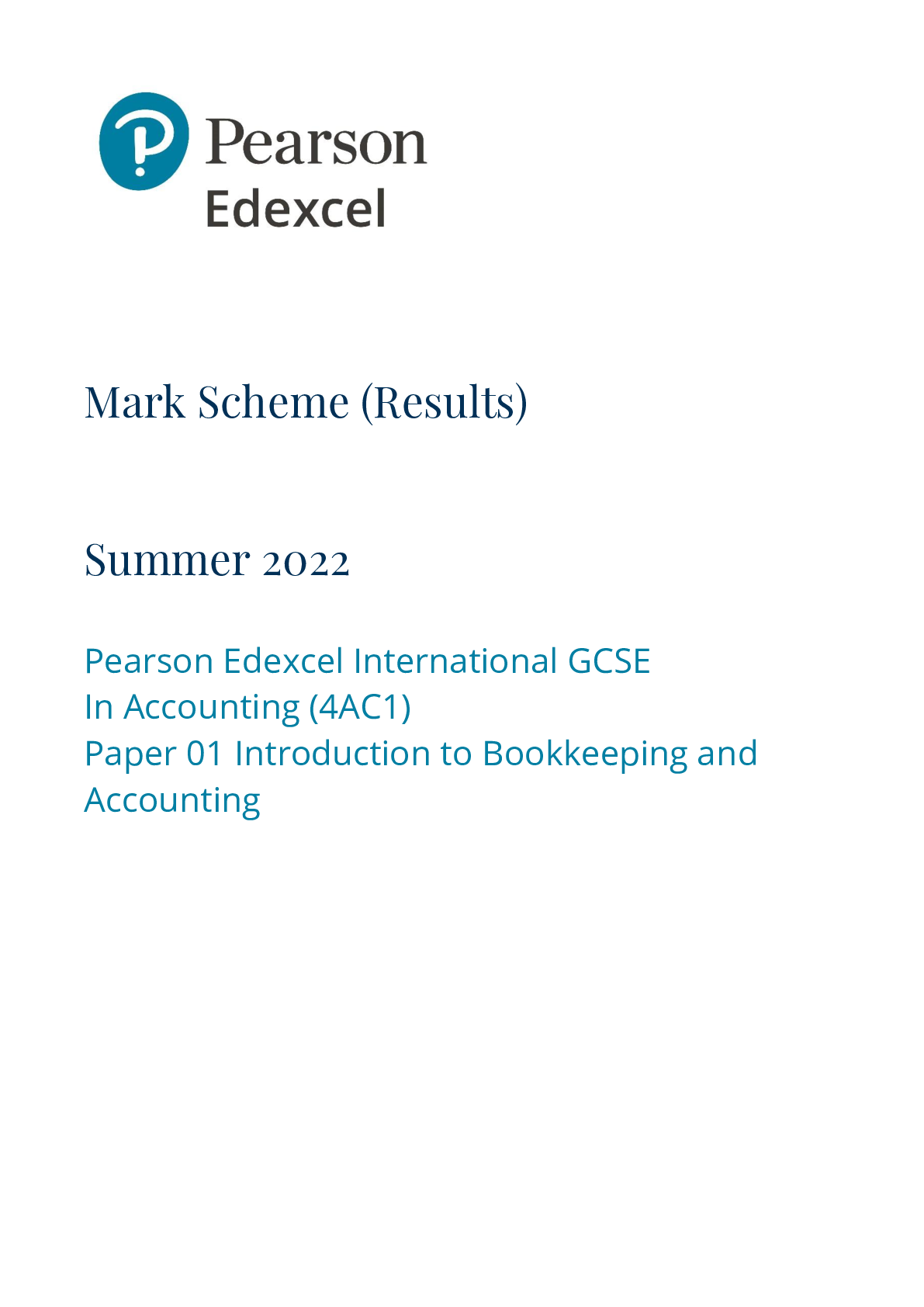Religious Studies > MARK SCHEMES > Mark Scheme (Results) Summer 2022 Pearson Edexcel GCSE In Religious Studies B Short Course (3RB0) Pa (All)
Mark Scheme (Results) Summer 2022 Pearson Edexcel GCSE In Religious Studies B Short Course (3RB0) Paper 2: Area of Study 2 – Religion, Peace and Conflict Option 2G: Sikhism Edexcel and BTEC Qualifications
Document Content and Description Below
Mark Scheme (Results) Summer 2022 Pearson Edexcel GCSE In Religious Studies B Short Course (3RB0) Paper 2: Area of Study 2 – Religion, Peace and Conflict Option 2G: Sikhism Edexcel and BTEC ... Qualifications Edexcel and BTEC qualifications are awarded by Pearson, the UK’s largest awarding body. We provide a wide range of qualifications including academic, vocational, occupational and specific programmes for employers. For further information visit our qualifications websites at www.edexcel.com or www.btec.co.uk. Alternatively, you can get in touch with us using the details on our contact us page at www.edexcel.com/contactus. Pearson: helping people progress, everywhere Pearson aspires to be the world’s leading learning company. Our aim is to help everyone progress in their lives through education. We believe in every kind of learning, for all kinds of people, wherever they are in the world. We’ve been involved in education for over 150 years, and by working across 70 countries, in 100 languages, we have built an international reputation for our commitment to high standards and raising achievement through innovation in education. Find out more about how we can help you and your students at: www.pearson.com/uk Summer 2022 Question Paper Log Number P71275A Publications Code 3RB0_2G_2206_MS All the material in this publication is copyright © Pearson Education Ltd 2022 General Marking Guidance • All candidates must receive the same treatment. Examiners must mark the first candidate in exactly the same way as they mark the last. • Mark schemes should be applied positively. Candidates must be rewarded for what they have shown they can do rather than penalised for omissions. • Examiners should mark according to the mark scheme not according to their perception of where the grade boundaries may lie. • There is no ceiling on achievement. All marks on the mark scheme should be used appropriately. • All the marks on the mark scheme are designed to be awarded. Examiners should always award full marks if deserved, i.e. if the answer matches the mark scheme. Examiners should also be prepared to award zero marks if the candidate’s response is not worthy of credit according to the mark scheme. • Where some judgement is required, mark schemes will provide the principles by which marks will be awarded and exemplification may be limited. • When examiners are in doubt regarding the application of the mark scheme to a candidate’s response, the team leader must be consulted. • Crossed out work should be marked UNLESS the candidate has replaced it with an alternative response. Question number Answer Reject Mark Q1 (a) AO1 3 marks Award one mark for each point identified up to a maximum of three. • The sangat helps a Sikh progress in the spiritual life (1) • It provides support for Sikhs (1) • It provides opportunities for sewa (1) • It provides comfort in times of distress (1) • It unites Sikhs in worship (1). Accept any other valid response. • Lists (maximum of one mark) (3) Question number Answer Reject Mark 1(b) AO1 4 marks Award one mark for providing an action. Award a second mark for development of the action. Up to a maximum of four marks. • An action that enables a Sikh to become gurmukh is selfless service (1) for example serving food in the langar (1) • Living an honest life may make a Sikh gurmukh (1) by avoiding work that results in dishonesty (1) • Giving to charity (1); this makes them gurmukh because they are sharing with the less fortunate (1). Accept any other valid response. • Repeated action/ development • Development that does not relate both to the action given and to the question. (4) Question number Answer Reject Mark 1(c) AO1 5 marks Award one mark for each teaching. Award further marks for each development of the teaching up to a maximum of four marks. Award one further mark for any relevant source of wisdom or authority. • The Mool Mantar shows that God is one (1) ‘Ik Onkar.’ (Guru Granth Sahib 1) (1). God alone should be worshipped • The Mool Mantar teaches that God’s name is truth (1) ‘Satnaam.’ (Guru Granth Sahib 1) (1) therefore Sikhs can reach God if they reflect on truth (1) • The Mool Mantar teaches that God’s creative power is personified (1) ‘Karta Purakh.’ (Guru Granth Sahib 1) (1) which means God is present in creation including the souls of human beings (1). Accept any other valid response. • Repeated teaching/ development • Development that does not relate both to the teaching given and to the question • Reference to a source of wisdom that does not relate to the teaching given. (5) Question number Indicative content Mark 1(d) AO2 12 marks, SPaG 3 marks Candidates must underpin their analysis and evaluation with knowledge and understanding. Candidates will be required to demonstrate thorough knowledge and understanding as well as accuracy of religion and belief when responding to the question and in meeting AO2 descriptors. AO2 Arguments for the statement: • The main teaching of Sikhism is equality, through the Guru Granth Sahib all Sikhs are reminded that ‘All beings and creatures are His. He belongs to all.’ (Guru Granth Sahib 425) • Guru Nanak taught that women and men are both equal and respected. One of his teachings that reflects this is ‘From woman, man is born’ therefore ’without woman, there would be no one at all.’ (Guru Granth Sahib 473) • Mai Bhago is an excellent example of how women were treated equally. She was given the task of leading 40 Sikh soldiers to battle and was one of Guru Gobind Singh’s bodyguards. This shows that women were just as capable as men in war. Arguments against the statement: • Some Sikhs may disagree with this statement as culturally they are treated differently, for example, women are not allowed to read from the Guru Granth Sahib at the Harmandir Sahib • In some areas women are still expected to stay at home and look after the family. Girls are expected to do most of the household chores • Some Sikh females have experienced discrimination within the family and at the gurdwara. They have pressure put on them to dress modestly and not to date. Accept any other valid response. Candidates who do not consider different viewpoints within the religious tradition or non-religious viewpoints (as instructed in the question) cannot achieve marks beyond Level 2. (15) Level Mark Descriptor 0 No rewardable response. Level 1 1–3 • Information/issues are identified and make superficial connections among a limited range of elements in the question, underpinned by isolated elements of understanding of religion and belief. • Judgements are supported by generic arguments to produce a conclusion that is not fully justified. Level 2 4–6 • Superficial connections are made among many, but not all, of the elements in the question, underpinned by a limited understanding of religion and belief. • Judgements of a limited range of elements in the question are made. Judgements are supported by an attempt to appraise evidence, much of which may be superficial, leading to a conclusion that is not fully justified. Level 3 7–9 • Deconstructs religious information/issues, leading to coherent and logical chains of reasoning that consider different viewpoints. These are underpinned by an accurate understanding of religion and belief. Connections are made among many, but not all, of the elements in the question. • Constructs coherent and reasoned judgements of many, but not all, of the elements in the question. Judgements are supported by the appraisal of evidence, some of which may be superficial, leading to a partially justified conclusion. Level 4 10–12 • Critically deconstructs religious information/issues, leading to coherent and logical chains of reasoning that consider different viewpoints. These are underpinned by a sustained, accurate and thorough understanding of religion and belief. Connections are made among the full range of elements in the question. • Constructs coherent and reasoned judgements of the full range of elements in the question. Judgements are fully supported by the comprehensive appraisal of evidence, leading to a fully justified conclusion. SPaG Marks Descriptors 0 marks No marks awarded • The candidate writes nothing. • The candidate’s response does not relate to the question. • The candidate’s achievement in SPaG does not reach the threshold performance level, for example errors in spelling, punctuation and grammar severely hinder meaning. 1 mark Threshold performance • Candidates spell and punctuate with reasonable accuracy. • Candidates use rules of grammar with some control of meaning and any errors do not significantly hinder meaning overall. • Candidates use a limited range of specialist terms as appropriate. 2 marks Intermediate performance • Candidates spell and punctuate with considerable accuracy. • Candidates use rules of grammar with general control of meaning overall. • Candidates use a good range of specialist terms as appropriate. 3 marks High performance • Candidates spell and punctuate with consistent accuracy. • Candidates use rules of grammar with effective control of meaning overall. • Candidates use a wide range of specialist terms as appropriate. Question number Answer Reject Mark 2(a) AO1 3 marks Award one mark for each point identified up to a maximum of three. • Sikh teaching about the treatment of criminals is not to take revenge (1) • To show compassion to all criminals (1) • Reformation is the best way to treat criminals (1) • Creating a safe society, therefore Sikhs agree with prisons, but only for reform (1) • All criminals should be treated equally and given a chance (1). Accept any other valid response. • Lists (maximum of one mark) (3) Question number Answer Reject Mark 2(b) AO1 4 marks Award one mark for providing an action. Award a second mark for development of the action. Up to a maximum of four marks. • Sikhs act to end crime by educating criminals (1) giving the criminals time to reflect and not to reoffend (1) • Sikhs act to end crime by working with Sikh Welfare Awareness Team (SWAT) (1), they go and help the homeless and vulnerable to prevent crime (1) • By encouraging equality of all (1) showing compassion and forgiveness to criminals and therefore ending crime (1). Accept any other valid response. • Repeated action/ development • Development that does not relate both to the action given and to the question. (4) Question number Answer Reject Mark 2(c) AO1 5 marks Award one mark for each belief. Award further marks for each development of the belief up to a maximum of four marks. Award one further mark for any relevant source of wisdom or authority. • Sikhs believe that one aim of punishment is to show that justice is done (1). God will apply justice and decide the form of [Show More]
Last updated: 2 years ago
Preview 1 out of 12 pages
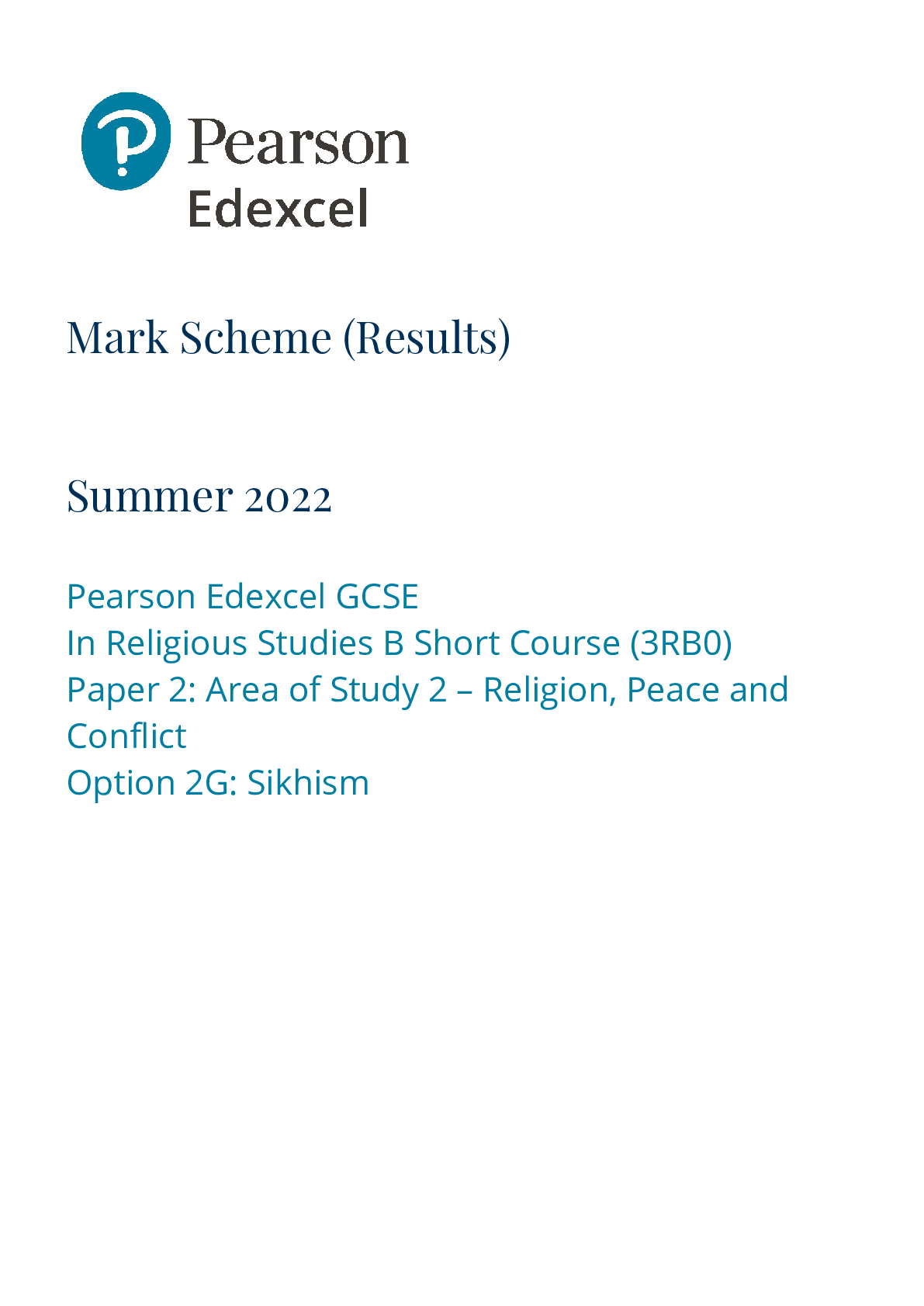
Buy this document to get the full access instantly
Instant Download Access after purchase
Buy NowInstant download
We Accept:

Reviews( 0 )
$8.00
Can't find what you want? Try our AI powered Search
Document information
Connected school, study & course
About the document
Uploaded On
Apr 03, 2023
Number of pages
12
Written in
Additional information
This document has been written for:
Uploaded
Apr 03, 2023
Downloads
0
Views
82

